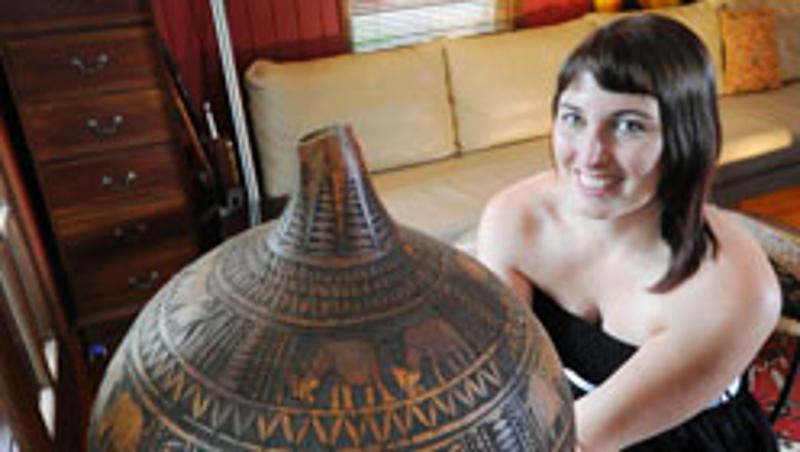
For a "throw away" society, Queenslanders have a "lot of guilt" about disposing of products that are not recycled, a Queensland University of Technology (QUT) industrial design study has found.
PhD researcher in industrial design at QUT's School of Design Shayne Beaver looked at people's emotional attachments to every day materials such as timber, metal, glass and plastic and found we valued more highly the ones that could be maintained or recycled.
In an almost counterintuitive finding for a society that has mountainous landfill sites, she said people wanted their relationships with products to "end well" and that meant knowing the products would be recycled or reused.
"There is a lot of guilt about the way things are disposed of and that translates to a higher status for materials that can be renewed and reused," Ms Beaver said.
"The highest status was given to wood because people felt it could be rejuvenated - sanded and repainted or oiled, it lasts and it can be recycled."
Ms Beaver studied the reactions of 15 pairs of people of all ages - one male and one female - when asked to describe their thoughts on wood, glass, metal, plastic, textile, and ceramic, in terms of durability, disposal, maintenance, origin, texture, appearance and other qualities.
"The study had a range of aims included to underpin research into new material so that positive feelings towards products can be enhanced with the materials used," Ms Beaver said.
"For example, people really dislike plastic. The say it discolours, its texture is unpleasant, it makes your hands sweat and people don't know if it will be recycled.
"They also said they didn't like it because it imitates other material, such as metal in mobile phones, and then it lets people down.
"Many participants mentioned the plastic toys they had and how they had learnt to expect plastic things to break. So whereas they would hold onto a stainless steel mixing bowl they wouldn't keep a plastic one."
She said it was important for designers to know about human reactions to materials so they could make products people liked to use and valued.
"Also we need to understand how to choose materials that fit the purpose of the product," said Ms Beaver.
" For example, if something is going to be only used for four months then it should be made from material that is recyclable.
"Study participants also showed that they would blacklist a brand if they were not satisfied with the life of the product in relation to the material. For example, one participant tried to buy cartridges for a printer that was less than a year old and was told that they no longer made the cartridges. She was advised to buy a new printer.
"Instead, she bought refilled cartridges and vowed never to purchase that brand again because she was angered by the waste of having to throw out the printer even though it was cheap to replace."
Media contact: Niki Widdowson, QUT media officer, 07 3138 1841 or n.widdowson@qut.edu.au.
** High res photo of Ms Beaver available for media use.




